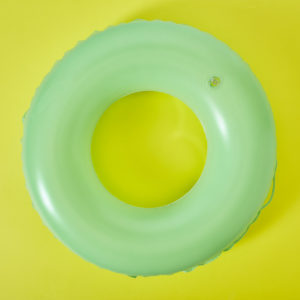

Summer Safety for Kids
Even with the uncertain times, summer weather is still quickly approaching. Before you set foot on some summer fun, it’s important to make sure the kiddos stay safe. Let’s go over the top three areas of summer that have the potential to be hazardous and the steps you can take to ensure safety.
Water Safety. While swimming and other water activities are great ways for kids to stay active during the summer, precautions are necessary to keep them safe.
• If possible, take your children to swimming lessons.
• Make sure there is always an adult to supervise water fun.
• When boating, always make sure your child is wearing a life jacket.
Sun Safety. It only takes a few serious sunburns to produce skin cancer later in life. Adults must step in to make sure kids are protected from the damage of UV rays when outdoors.
• Stay in the shade as much as possible.
• When possible, dress your child in long sleeve shirts and pants.
• Hats and sunglasses are not only cool, but they go a long way to protect!
• Use a sunscreen of at least SPF 15 every time your child goes outside. Apply 30 minutes before exposure and reapply as needed based on activity.
Home Safety. Injuries among kids are common in the summer months, and with a little precaution, some of them can be prevented.
• Train your child on age-appropriate tasks such as using a stove, kitchen utensils, and other appliances.
• Make sure everyone in the family knows how to prevent house fires and how to respond should one occur.
• Take a look at your outside playground and repair or replace battered playsets.
The Incredible Edible Egg

In the 1970s, our healthcare system began to put great focus on the role of cholesterol in heart disease. It was said that eggs, which are high in cholesterol, should be very limited in one’s diet. It seemed logical that a food high in cholesterol could cause an increase of cholesterol – but new research shows this simply isn’t true. One study found that people who ate more than seven eggs per week saw an increase in HDL cholesterol, which has protective properties against bad cholesterol (LDL). There is evidence that suggests eating two eggs per day can actually be beneficial in lowering risk factors for heart disease and type-2 diabetes.
The egg, which is the most affordable and available food on Earth, is also one of the most nutritious! It contains Vitamin A, folate, Vitamins B5, B12 and B2, Phosphorous, Selenium, Vitamin D, and choline. It sounds to us that the egg is everything it’s cracked up to be!


Happy Mother’s Day – It’s all about YOU!
Women all across the globe are busy with careers, relationships, home, and children – but most are putting themselves on the back burner. In order to keep all those plates spinning, it’s crucial that you put yourself first! When it comes to women’s health, there are a few common issues that tend to be ignored but shouldn’t.
- Your annual physical is the most important appointment you’ll keep all year. This time spent with your physician is vital to ensure your body is functioning properly, from blood pressure to hormone levels.
- It may seem like that shortness of breath is related to inactivity on your part, but with heart disease being the number one killer among women, don’t chance it. If you’ve noticed shortness of breath, back or jaw pain, nausea, chest pain, or cold sweats, seek medical attention immediately!
- Pelvic issues such as heavy, painful periods, abnormal vaginal bleeding, or painful intercourse are not issues that should be tolerated. These conditions can be treated, and more testing needs to be done to make sure there isn’t a more serious underlying problem.
- Skin changes should never be ignored. A mole or freckle that has changed color or shape needs to be seen by a physician. Checking your skin should be as routine as checking your breasts.
- Speaking of breast checks – performing a breast self-exam is one of the easiest things you should be doing on a regular basis. Take the time during your morning shower to check for lumps, changes in size, shape, or skin. Notify your doctor of anything unusual and, most importantly – keep your annual mammogram appointment!






